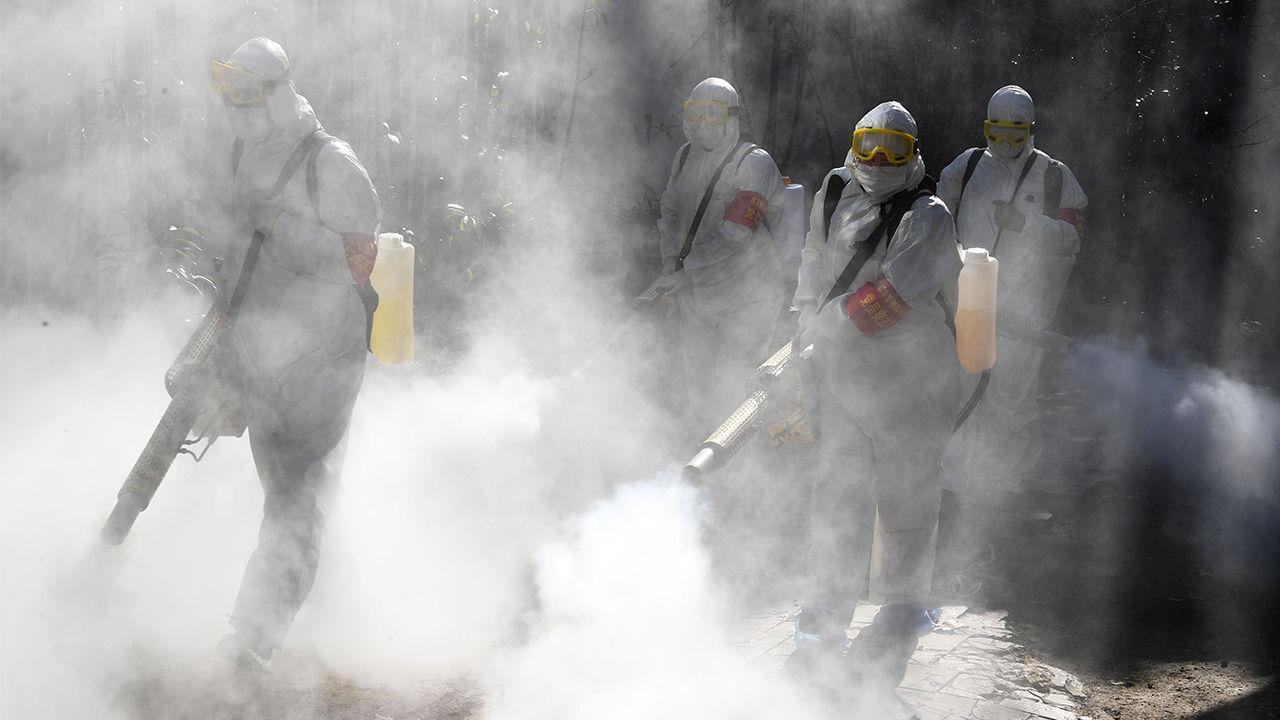Recent articles and news items showed groups of people (mainly in Asia) spraying whole cities with disinfectant (as shown on a photo below). Apart from questions about the used substances, dose, frequency and its effectiveness, I was wondering if this practice is not worsening the chances of infection for the following possible reasons:
- As people likely breath in this disinfectant solution, isn't that irritating the respiratory system and therefore increasing risk of infection or more specifically worsening possibly already existent respiratory diseases such as COPD or Asthma resulting in the same effect (increasing risk of infection)?
- Doesn't spraying such amounts of disinfectant in the open air "kill" many healthy organisms and bacteria that are beneficial for human?
- Setting of a chain reaction as a result of 2. indirectly harming humans in the longer term?
For example an article on businessinsider.com shows that bleach is used. While several articles state that inhaling bleach causes damage to lungs.
